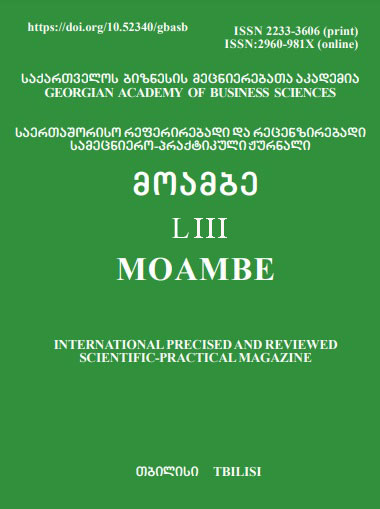The impact of artificial intelligence on the media
DOI:
https://doi.org/10.52340/gbsab.2024.53.01Keywords:
Media, artificial intelligence, communication, journalistAbstract
Artificial intelligence in media and mass communication is a transformative force that is revolutionizing the way information is produced, distributed, and consumed. In today’s digital age, its technologies are easily reshaping the very fabric of media by automating tasks, enhancing content personalization, and learning all aspects of audience behavior.
The uniqueness of AI lies in its ability to process large amounts of data and perform complex tasks such as natural language generation, real-time in-depth sentiment analysis, and predictive analytics, which were previously laborious and time-consuming. AI-driven tools are used to detect fake news, streamline important processes, create rich content, generate photo/video content, and more. All of these are resources that we didn’t have before and that are now vital because they save us a lot of time, and time is what matters most to us today.
The relevance of AI in this area goes beyond technological advances. It has significant ethical and social implications. While it offers new innovative opportunities, it also poses risks to data privacy, disinformation, and content manipulation in many targeted ways. As the role of artificial intelligence in the media continues to grow, it is essential to establish controls to ensure ethical use, protect transparency, and safeguard democratic processes.
The future of artificial intelligence in media and mass communication is quite high, so its innovations in the future will continue to further refine how media outlets interact with audiences, simplify content production, and better shape the meaning of information in society. This technological evolution requires careful consideration of its benefits and risks to ensure both positive and negative impacts are ensured through practice.
Downloads
References
Tbilisi school of communication: https://commschool.ge/ra-aris-xelovnuri-inteleqti/
IDFI: https://idfi.ge/ge/artificial%20intelligence_international_tendencies_and_georgia
UMI: https://www.goethe.de/prj/umi/ka/the/sfi.html
ChatGPT: https://chatgpt.com
Downloads
Published
How to Cite
Issue
Section
License
Copyright (c) 2024 Georgian Academy of Business Sciences "Moambe"

This work is licensed under a Creative Commons Attribution-NonCommercial-NoDerivatives 4.0 International License.




